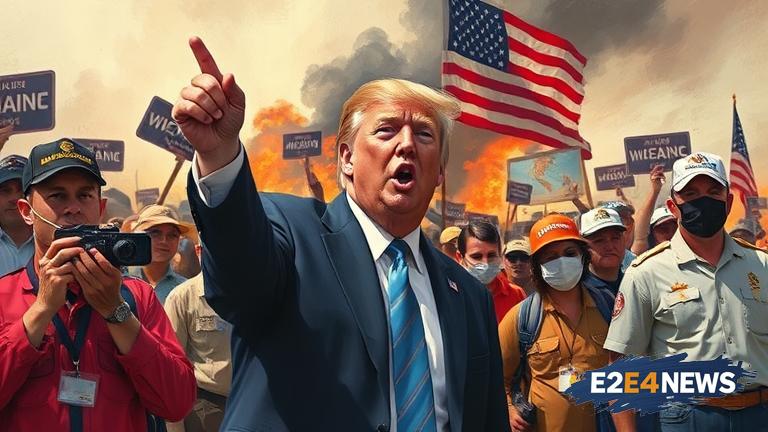The Trump administration’s immigration crackdown has reached a decisive moment, with the President’s policies sparking intense debate and controversy across the United States. The recent surge in enforcement actions and detention of undocumented immigrants has raised concerns about the treatment and welfare of those affected. The administration’s ‘zero-tolerance’ policy has led to the separation of thousands of families, with children being held in detention centers while their parents are prosecuted for crossing the border illegally. This policy has been widely criticized by human rights groups, lawmakers, and the public, with many arguing that it is inhumane and violates international law. The administration has also expanded its use of detention centers, with reports of overcrowding, poor conditions, and inadequate access to medical care and legal representation. The crackdown has also had a significant impact on the US economy, with many businesses relying on immigrant labor to fill labor gaps. The agriculture, construction, and service industries have been particularly affected, with some companies reporting difficulties in finding workers to fill vacant positions. The administration’s policies have also sparked a national debate about the role of immigration in American society, with some arguing that it is essential for economic growth and others claiming that it poses a threat to national security. Despite the controversy, the administration remains committed to its policies, with the President tweeting that ‘we must build the wall’ to prevent illegal immigration. The issue has also become a major talking point in the upcoming elections, with many candidates using it to mobilize their base and attract voters. The international community has also weighed in on the issue, with the United Nations and other human rights organizations condemning the administration’s policies as ‘cruel’ and ‘inhumane’. The American public remains deeply divided on the issue, with some supporting the administration’s tough stance on immigration and others opposing it. The debate has also sparked a wave of protests and demonstrations across the country, with many calling for an end to the ‘zero-tolerance’ policy and the closure of detention centers. The administration’s policies have also had a significant impact on the mental health and wellbeing of those affected, with reports of anxiety, depression, and trauma among detained immigrants. The issue has also raised concerns about the role of law enforcement in immigration policy, with some arguing that it is being used as a tool for political repression. The administration’s use of ICE and Border Patrol agents to enforce its policies has also sparked controversy, with some arguing that it is leading to the militarization of the border. The crackdown has also had a significant impact on the US asylum system, with many arguing that it is being used to deny legitimate asylum claims and return vulnerable individuals to danger. The administration’s policies have also sparked a wave of lawsuits and legal challenges, with many arguing that they are unconstitutional and violate international law. The issue is likely to remain a major point of contention in the upcoming elections, with many candidates using it to mobilize their base and attract voters. The administration’s policies have also raised concerns about the long-term impact on American society, with some arguing that they will lead to a more divided and xenophobic country. The debate has also sparked a wave of activism and organizing, with many calling for an end to the ‘zero-tolerance’ policy and the closure of detention centers. The issue has also raised concerns about the role of Congress in immigration policy, with some arguing that it has failed to provide adequate oversight and accountability. The administration’s policies have also sparked a wave of criticism from religious leaders, with many arguing that they are morally reprehensible and violate the principles of compassion and justice.





